
- Subject:
- Life Science
- Material Type:
- Module
- Author:
- Urbi Ghosh
- Date Added:
- 08/05/2019



Biology is designed for multi-semester biology courses for science majors. It is grounded on an evolutionary basis and includes exciting features that highlight careers in the biological sciences and everyday applications of the concepts at hand. To meet the needs of today’s instructors and students, some content has been strategically condensed while maintaining the overall scope and coverage of traditional texts for this course. Instructors can customize the book, adapting it to the approach that works best in their classroom. Biology also includes an innovative art program that incorporates critical thinking and clicker questions to help students understand—and apply—key concepts.
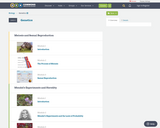
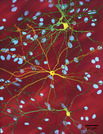
By the end of this section, you will be able to:Explain the relationship between genotypes and phenotypes in dominant and recessive gene systemsDevelop a Punnett square to calculate the expected proportions of genotypes and phenotypes in a monohybrid crossExplain the purpose and methods of a test crossIdentify non-Mendelian inheritance patterns such as incomplete dominance, codominance, recessive lethals, multiple alleles, and sex linkage

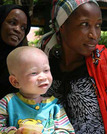
By the end of this section, you will be able to:Explain Mendel’s law of segregation and independent assortment in terms of genetics and the events of meiosisUse the forked-line method and the probability rules to calculate the probability of genotypes and phenotypes from multiple gene crossesExplain the effect of linkage and recombination on gamete genotypesExplain the phenotypic outcomes of epistatic effects between genes

By the end of this section, you will be able to:Describe the scientific reasons for the success of Mendel’s experimental workDescribe the expected outcomes of monohybrid crosses involving dominant and recessive allelesApply the sum and product rules to calculate probabilities

Fundamentals of Biology focuses on the basic principles of biochemistry, molecular biology, genetics, and recombinant DNA. These principles are necessary to understanding the basic mechanisms of life and anchor the biological knowledge that is required to understand many of the challenges in everyday life, from human health and disease to loss of biodiversity and environmental quality.
Course Format
This course has been designed for independent study. It consists of four units, one for each topic. The units can be used individually or in combination. The materials for each unit include:
Lecture Videos by MIT faculty.
Learning activities, including Interactive Concept Quizzes, designed to reinforce main concepts from lectures.
Problem Sets you do on your own and check your answers against the Solutions when you're done.
Problem Solving Video help sessions taught by experienced MIT Teaching Assistants.
Lists of important Terms and Definitions.
Suggested Topics and Links for further study.
Exams with Solution Keys.
Content Development
Eric Lander
Robert Weinberg
Tyler Jacks
Hazel Sive
Graham Walker
Sallie Chisholm
Dr. Michelle Mischke
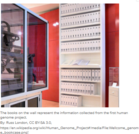
The human genome project was one the most important human discoveries in the past 100 years. It creates a map of every gene in the human body. Through this lesson you will explore the history of the genome project, its applications today, and implications for your life. In addition, you will reflect on its impact on your life and determine if you think this is a positive or negative change. Based on your understanding, you will look at different perspectives with empathy to better understand how this technology impacts other people's lives.StandardsBIO.B.2.4Explain how genetic engineering has impacted the fields of medicine, forensics, and agriculture (e.g., selective breeding, gene splicing, cloning, genetically modified organisms, gene therapy).
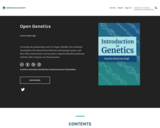
Genetics, otherwise known as the Science of Heredity, is the study of biological information, and how this information is stored, replicated, transmitted and used by subsequent generations. The study of genetics can be sub-divided into three main areas: Transmission Genetics, Molecular Genetics, and Population Genetics. In this Introductory text, the focus is on Transmission or Classical Genetics, which deals with the basic principles of heredity and the mechanisms by which traits are passed from one generation to the next. The work of Gregor Mendel is central to Transmission Genetics; as such, there is a discussion about the pioneering work performed by him along with Mendel’s Laws, as they pertain to inheritance. Other aspects of Classical Genetics are covered, including the relationship between chromosomes and heredity, the arrangement of genes on chromosomes, and the physical mapping of genes.